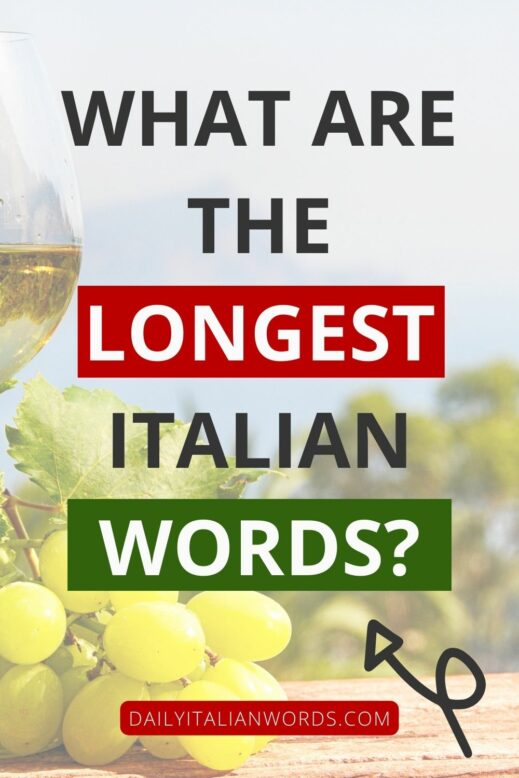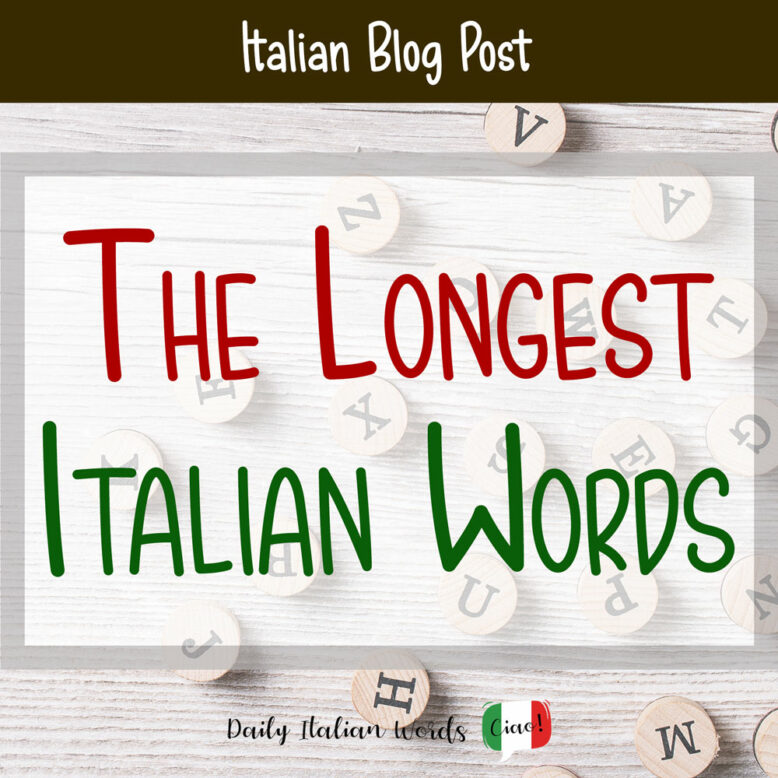We all know that the Italian language is abundant in rich, complicated and, at times, convoluted words. Among them are also some very long words, the most difficult to memorise, although they are helped by a pleasant and fun melody.

What is the longest Italian word you know? It might be a word such as:
incredibilmente → Questo gioco è incredibilmente difficile.
incredibly → This game is incredibly difficult.
fantasmagorico → Lo spettacolo di ieri è stato fantasmagorico.
phantasmagorical → Yesterday’s show was phantasmagorical.
impressionante → Non ho mai visto qualcosa di così impressionante.
impressive → I’ve never seen something so impressive.
Or perhaps you even know:
Precipitevolissimevolmente which means “very very fast, in hurry”.

This, in reality, is still nothing in comparison with what the Italian dictionary is hiding amongst its pages. Are you ready to read the longest words in the Italian language?
Here we go:
Hippopotomonstrosesquipedaliofobia
Nonilfenossipolietilenossietanolo
Pentagonododecaedrico-tetraedrico
Psiconeuroendocrinoimmunologia
To tell the truth, these are very difficult terms even for a native speaker, both in terms of reading and comprehension and they are never used in everyday life. They are also very technical.
To end off, let’s talk about a curiosity of the Italian language that concerns the length of the words. An analysis of the Italian dictionary shows that the average length of a word is 9.7 letters and many are everyday terms.
Here are some examples of words with a length of 9 letters that we use every day:
Zafferano → Il risotto allo zafferano è molto buono.
Saffron → Saffron risotto is very good.
Pacchetto → Quanti pacchetti mi hai spedito?
Package → How many packages did you send me?
Labirinto → Questo giardino sembra un labirinto.
Labyrinth → This garden looks like a labyrinth.

Heather Broster is a graduate with honours in linguistics from the University of Western Ontario. She is an aspiring polyglot, proficient in English and Italian, as well as Japanese, Welsh, and French to varying degrees of fluency. Originally from Toronto, Heather has resided in various countries, notably Italy for a period of six years. Her primary focus lies in the fields of language acquisition, education, and bilingual instruction.


